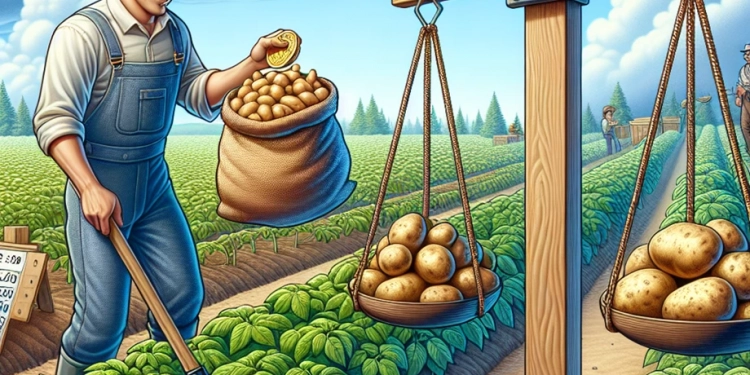Collaborative Efforts Urged to Prevent Market Disruptions and Ensure Fair Distribution
Odisha is poised to address the recent surge in potato prices as 300 truckloads of potatoes from Uttar Pradesh are scheduled to arrive by December 2. The intervention, led by Food Supplies and Consumer Welfare Minister KC Patra, aims to stabilize local markets following West Bengal’s decision to halt potato supplies to Odisha.
Minister Patra highlighted the urgency of the situation, warning that black marketing practices would face strict penalties. He reassured consumers that the incoming supply would help normalize prices swiftly.
The halt in supply by West Bengal has drawn criticism from Odisha, with Minister Patra expressing disappointment in the neighboring state’s approach. He emphasized that regions with surplus potato production, like West Bengal, have a responsibility to support neighboring states in times of need. Patra further cautioned that Bengal traders risk economic losses without broader regional distribution, potentially harming their market sustainability.
Patra’s statements underscore the need for a cooperative food distribution framework among states. Such collaboration is crucial not only for price stabilization but also for ensuring equitable food access and preventing market imbalances that could escalate into prolonged supply chain disruptions.
This development holds important lessons for farmers, agribusiness professionals, and policymakers. For producers and traders, it highlights the value of establishing diversified supply chains to mitigate risks associated with regional dependency. For agribusinesses, it underscores the importance of strategic planning to maintain market stability in the face of supply challenges.
As Odisha braces for the arrival of the potato shipments, stakeholders across the supply chain are urged to act responsibly to ensure smooth distribution and equitable pricing. The situation calls for a unified approach to managing agricultural resources, reinforcing the importance of state-to-state collaboration in a globally interconnected food economy.







